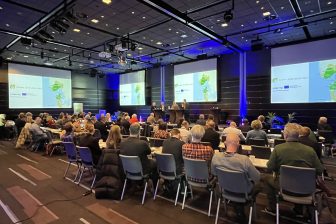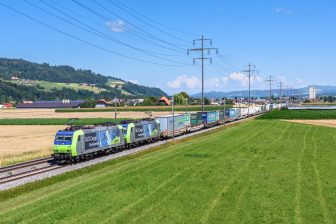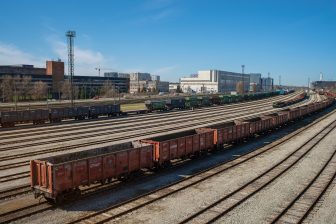Dutch service desk launched for rail freight dangerous chemicals
In the Netherlands a service desk has been opened for freight operators with questions regarding the transportation of dangerous chemicals. The Servicedesk Basisnet was opened by infrastructure manager ProRail, with the aim to maximise the transportation of this type of cargo over the Betuweroute, the only dedicated freight line.
The transportation of dangerous chemicals is regulated in the Dutch Basisnet Law, which applies to rail, road and sea freight. This law sets the risk barriers for the surrounding of each railway line. Operators must adhere to these conditions. Ideally, dangerous chemicals are not moved along the regular railway network, as these lines often cross densely populated areas. However, as long as the risk barrier is not exceeded, operators may not be forced to opt for a certain route.
Education
Apart from answering questions of operators, the service desk aims to raise awareness about possible alternatives in certain cases, explained ProRail. It will also answer questions of involved municipalities and provinces. Moreover, it will play an important role in portraying transport streams of dangerous chemicals for the ministry of Infrastructure and the Environment, which is responsible for developing policy in this regard.
Rail freight of dangerous chemicals in the Netherlands has been a topic of debate, as the risk ceilings in place are believed to be exceeded too often. This is especially true for the connection Amersfoort-Apeldoorn (Bentheim route) and Eindhoven-Venlo (Brabant route), popular freight corridors to and from Germany. On the other hand, rerouting is seen as an unfavourable option by rail freight operators, as it leads to longer distances and consequently, to higher operational costs. Moreover, not all locomotives are equipped to access the ERTMS-system applicable on the Betuweroute and access requirements can be different on other routes.
Read more:
‘Dutch route enforcement for dangerous freight will harm industry’





